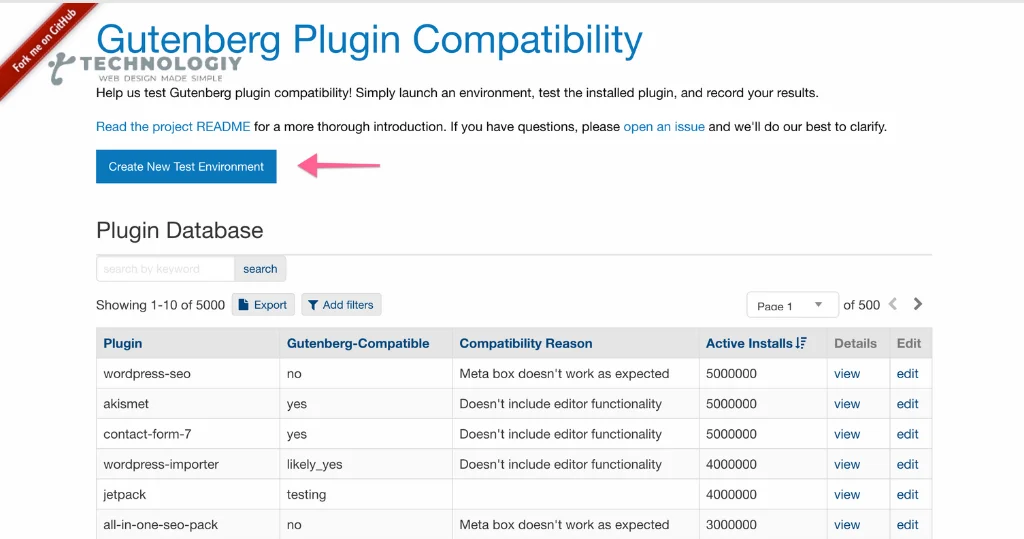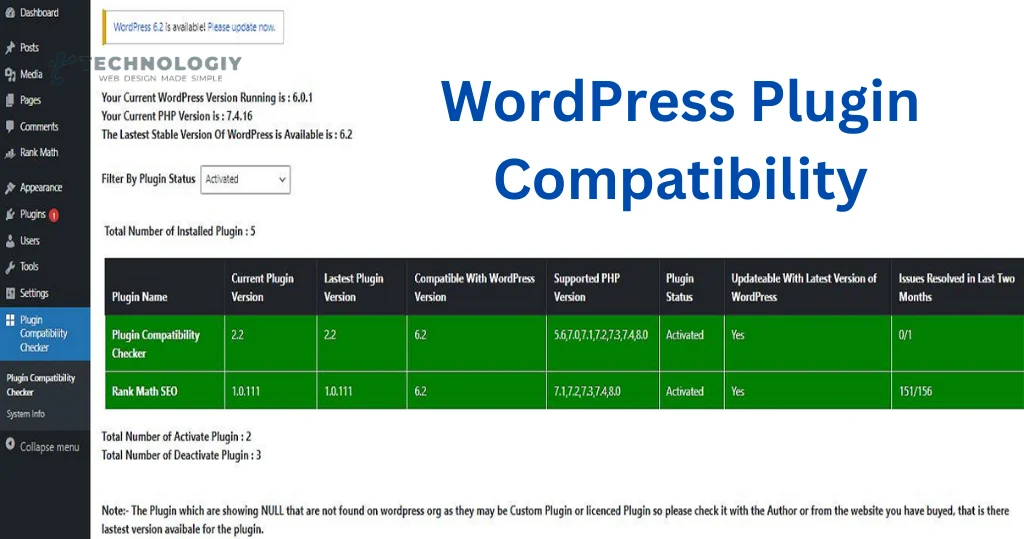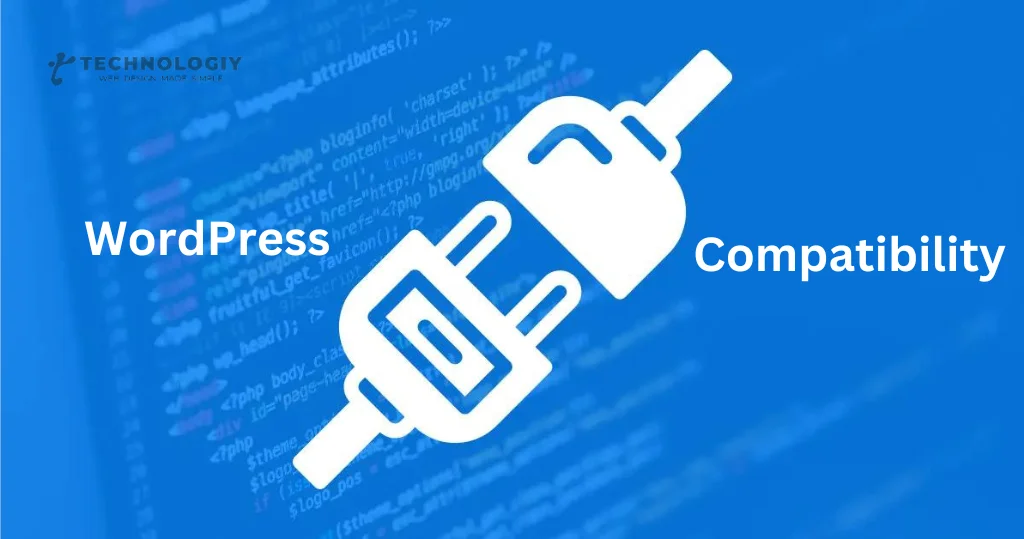Unlocking the Potential: Exploring the Best WordPress Plugin Compatibility. Are you a WordPress enthusiast who loves to explore new possibilities for your website? If so, you’re probably familiar with the power of WordPress plugins. These handy tools can enhance your website’s functionality and take it to the next level. However, with so many plugins available, it’s essential to choose the ones that are compatible with your WordPress site. In this blog post, we’ll unlock the potential and delve into the best WordPress plugin compatibility.
Yoast SEO:
One of the most popular WordPress plugins, Yoast SEO, helps optimize your website for search engines. It offers a wide range of features, including XML sitemap generation, content analysis, and keyword optimization. With Yoast SEO, you can ensure that your website ranks higher in search engine results, driving more organic traffic to your site.
WooCommerce:
If you’re running an online store or planning to launch one, WooCommerce is the perfect plugin for you. With its seamless integration with WordPress, this plugin allows you to set up and manage your e-commerce store effortlessly. You can customize your products, manage inventory, and process payments securely, all within your WordPress website.
Jetpack:
Jetpack is a versatile plugin that offers a suite of features designed to supercharge your WordPress site. From website security and performance optimization to social media integration and content creation tools, Jetpack has it all. With its WordPress plugin compatibility with various themes and plugins, Jetpack ensures a smooth experience for both you and your website visitors.
WPForms:
Looking to create stunning contact forms, surveys, or even an interactive quiz? Look no further than WPForms. This user-friendly plugin allows you to build forms with drag-and-drop functionality, making it easy for beginners and experts alike. WPForms seamlessly integrates with popular email marketing services, making it a powerful tool for lead generation and customer engagement.
Elementor:
If you want to take control of your website’s design without any coding knowledge, Elementor is the plugin for you. This powerful page builder plugin lets you create visually appealing and responsive layouts. With its WordPress plugin compatibility with almost all WordPress themes and plugins, Elementor offers endless possibilities to customize your website as per your preferences.
Akismet:
Spam comments can be a nuisance and can negatively impact your website’s user experience. Akismet, an anti-spam plugin, is here to save the day. With its intelligent filtering technology, Akismet detects and blocks spam comments automatically, ensuring that your website stays clean and clutter-free.
MonsterInsights:
Comprehending the performance of your website is essential when it comes to making well-informed choices. MonsterInsights simplifies this process by providing powerful analytics tools within your WordPress dashboard. This plugin seamlessly integrates with Google Analytics, allowing you to track your website’s traffic, user behavior, and conversion rates effortlessly.
Unlock the true potential of your WordPress website with these compatible plugins:

Whether you’re looking to improve SEO, optimize your online store, or enhance your website’s design, these plugins have got you covered. With their seamless WordPress plugin compatibility with WordPress, you can enhance your website’s functionality without any hassle.
So, what are you waiting for? Start exploring the vast world of WordPress plugins and unlock a whole new realm of possibilities for your website. Happy plugin hunting!
The Ultimate Guide to Ensuring Plugin Compatibility on Your WordPress Website:
Are you a WordPress website owner who loves the flexibility and functionality that plugins provide? If so, then you know how important it is to ensure that your plugins are compatible with your website. In this ultimate guide, we will explore everything you need to know about WordPress plugin compatibility, giving you the tools to keep your website running smoothly and efficiently.
Why is WordPress Plugin Compatibility Important?
Plugins are the backbone of any WordPress website, allowing you to add features, enhance functionality, and customize your site to meet your specific needs. However, not all plugins are created equal, and WordPress plugin compatibility issues can arise if you’re not careful. These issues can range from minor glitches to major conflicts that can crash your website.
Ensuring WordPress plugin compatibility is crucial for several reasons. Firstly, it ensures that all the features and functionality provided by your plugins work seamlessly together. This means your website will operate smoothly, providing a positive user experience for your visitors.
Additionally, compatibility ensures that your website remains secure. Incompatible plugins can create vulnerabilities that hackers can exploit, putting your website and your visitors’ data at risk. By regularly checking and ensuring compatibility, you can minimize the chances of security breaches.
We understand the importance of plugin compatibility on your WordPress website.
Choose Plugins Wisely:
The first step in ensuring compatibility is to choose your plugins wisely. Before installing a plugin, do thorough research to ensure it is reputable, well-maintained, and actively supported. Look for plugins that have high ratings, positive reviews, and a good track record of compatibility with other plugins and WordPress updates.
Update Everything Regularly:
Regularly updating your plugins, themes, and WordPress core is vital for maintaining compatibility. Developers often release updates to fix bugs, add new features, and improve security. The risk of compatibility problems is diminished through consistent updates.
Test New Plugins on a Staging Site:
Before installing a new plugin on your live website, it’s always a good idea to test it on a staging site. A staging site is a clone of your website where you can experiment with plugins and updates without affecting your live site. This allows you to identify any compatibility issues before they become a problem for your visitors.
Check Plugin Documentation and Support:
Plugin developers often provide documentation that outlines compatibility requirements and any known conflicts. Before installing a plugin, make sure to read through the documentation and check for any compatibility issues. Additionally, check the support forums for any reported conflicts or issues.
Use a Compatibility Checker Plugin:
There are several compatibility checker plugins available that can help you identify potential conflicts between your current plugins and any new ones you want to install. These plugins scan your website for compatibility issues and provide a report that highlights any potential conflicts. Using a compatibility checker can save you valuable time and prevent potential compatibility headaches.
Test After Each Plugin Update:
After updating a plugin, it’s essential to test your website thoroughly to ensure that everything is functioning as expected. This includes checking for any compatibility issues with other plugins or themes. By testing after each update, you can catch and resolve any compatibility issues before they impact your visitors’ experience.
Stay Informed:
Stay informed about compatibility issues by following plugin developers, staying active in WordPress forums, and subscribing to reputable WordPress websites and blogs. This way, you’ll be aware of any reported conflicts or compatibility concerns and can take proactive steps to address them.
Remember, ensuring plugin compatibility is an ongoing process. As your website evolves and new plugins are released, it’s important to remain vigilant and proactive in maintaining compatibility. By following the steps outlined in this guide, you’ll be well-equipped to keep your WordPress website running smoothly and efficiently.
WordPress plugin compatibility is crucial for the functionality, security, and overall success of your website:

By choosing plugins wisely, staying updated, testing on staging sites, checking documentation, using compatibility checkers, testing after updates, and staying informed, you can ensure a seamless and hassle-free experience for your visitors. So, go ahead, take the necessary steps, and enjoy the full potential of your WordPress website!
For more tips and insights on WordPress plugin compatibility, stay tuned to our blog.
A Friendly Guide to Understanding and Achieving WordPress Plugin Compatibility:
WordPress is a powerful and popular content management system that allows individuals and businesses to create and manage their websites effortlessly. One of the reasons for its popularity is the availability of a vast library of plugins that extend its functionality.
Nonetheless, plugins do not all possess the same qualities, and compatibility problems may surface.. In this friendly guide, we will explore the concept of WordPress plugin compatibility and provide you with tips to achieve compatibility seamlessly.
What is WordPress Plugin Compatibility?
WordPress plugin compatibility refers to the ability of a plugin to work harmoniously with your WordPress website, theme, and other installed plugins. Compatibility issues can lead to various problems, such as broken layouts, slow loading times, or even website crashes. It is crucial to ensure that the plugins you choose are compatible with your WordPress setup to maintain a smooth and functional website.
Understanding Plugin Compatibility:
To understand plugin compatibility, it’s important to grasp the concept of WordPress core updates. WordPress frequently issues updates to enhance security, address software glitches, and introduce fresh functionalities. These updates can sometimes affect the functionality of plugins, especially if the plugin’s developer hasn’t kept up with the changes. This is why it’s essential to choose plugins that are regularly updated and maintained by their developers.
Tips to Achieve WordPress Plugin Compatibility
Choose reputable plugins:
When selecting plugins for your WordPress website, opt for those developed by reputable and established developers. Read user reviews, check the plugin’s ratings, and verify that it has a significant number of active installations.
Check compatibility information:
Plugin developers often provide information about their plugins’ compatibility with different versions of WordPress. Make certain that the plugins you select are in harmony with your existing WordPress version.
Keep everything up to date:
Regularly update your WordPress core, theme, and installed plugins to the latest versions. Developers usually release updates to address compatibility issues and improve functionality.
Test plugins before installation:
Before installing a new plugin, it’s a good practice to test it on a staging or development environment. This way, you can identify any compatibility issues without affecting your live website.
Use a plugin compatibility checker:
There are various plugin compatibility checker tools available online that can help you determine the compatibility of your installed plugins with the latest version of WordPress. These tools can save you time and effort in identifying potential conflicts.
Reach out to developers:
If you encounter compatibility issues with a specific plugin, don’t hesitate to reach out to the plugin’s developer. They may be able to provide you with a solution or suggest alternative plugins that are compatible with your setup.
Consider professional help:
If you’re not comfortable handling compatibility issues on your own, consider hiring a WordPress developer or seeking assistance from a reputable WordPress support service. They can help ensure that your plugins work seamlessly with your website.
Conclusion
WordPress plugin compatibility is crucial for maintaining a smooth and functional website. By following the tips mentioned in this friendly guide, you can navigate the world of plugins with confidence and ensure that your website remains compatible and secure. Remember, choosing reputable plugins, keeping everything up to date, and testing before installation are key to achieving WordPress plugin compatibility. Happy plugin hunting!
